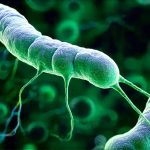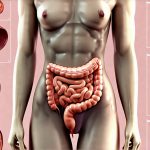The intricate world within our digestive system – often referred to as the gut microbiome – is profoundly influencing not just digestion but also mood, immunity, and even chronic disease risk. For decades, nutrition focused primarily on calories and macronutrients. However, we are now understanding that what we eat isn’t enough; how much we eat, particularly in relation to our individual gut health, matters immensely. The sheer diversity of bacteria residing in the gut means a ‘one-size-fits-all’ approach to diet simply doesn’t work. Personalizing your nutritional intake to support a thriving microbiome is becoming increasingly recognized as essential for overall wellbeing.
This isn’t about restrictive dieting or chasing the latest food trends. It’s about fostering a deeper connection with your body, recognizing its unique needs and responding accordingly. Many factors play into determining the “right amount” of food for your gut: individual metabolism, activity level, stress levels, sleep patterns, and even genetics all contribute to the equation. Furthermore, the composition of your microbiome itself influences how efficiently you digest different foods. This article will explore the key considerations when evaluating your dietary intake, aiming to empower you with knowledge to nourish your gut effectively and promote long-term health.
Understanding Gut Microbiome & Dietary Fiber
The gut microbiome is a complex ecosystem comprised of trillions of microorganisms—bacteria, fungi, viruses, and other microbes—living in our digestive tracts. These aren’t simply passengers; they actively participate in essential bodily functions. They aid in digesting food (especially fibers we can’t break down ourselves), synthesize vitamins, regulate inflammation, and even influence brain function through the gut-brain axis. A diverse microbiome is generally considered a healthier one. Diversity equates to resilience – a wider range of microbes means better ability to adapt to changes in diet or environmental stressors.
Diet plays an overwhelming role in shaping this microbial community. What we eat directly impacts which species thrive and which ones diminish. Processed foods, high sugar intake, and excessive antibiotic use can negatively impact microbiome diversity, leading to dysbiosis—an imbalance that’s linked to various health problems. Conversely, a diet rich in plant-based foods provides the necessary fuel for beneficial bacteria. This is where dietary fiber becomes crucial. Fiber isn’t digested by our bodies but instead serves as the primary food source for gut microbes. Different types of fiber feed different kinds of bacteria, contributing to overall diversity and functionality.
The amount of fiber needed varies significantly between individuals. A good starting point is aiming for 25-35 grams per day, but some people may benefit from more. Gradually increasing fiber intake is important to avoid digestive discomfort like bloating or gas. Sources include fruits, vegetables, whole grains, legumes, and nuts/seeds. Remember that prebiotic foods (like garlic, onions, leeks, asparagus) contain specific types of fiber that selectively feed beneficial bacteria, further supporting a healthy gut ecosystem. If you struggle with incorporating more fiber, consider how to train your gut for improved tolerance.
The Role of Fermentation & Short-Chain Fatty Acids
Fermentation is the process by which gut microbes break down undigested carbohydrates – primarily fiber – in the colon. This process produces various metabolites, most notably short-chain fatty acids (SCFAs). SCFAs—acetate, propionate, and butyrate—are incredibly important for gut health and overall wellbeing. Butyrate, in particular, is a primary energy source for cells lining the colon, promoting gut barrier integrity and reducing inflammation.
These SCFAs aren’t confined to the gut either. They enter the bloodstream and influence various physiological processes throughout the body. Acetate can impact brain function, while propionate affects glucose metabolism. In essence, SCFAs are a key link between the gut microbiome and systemic health. Maximizing SCFA production requires consistently feeding your gut microbes with adequate amounts of diverse fiber. This also means avoiding dietary patterns that inhibit fermentation, such as highly processed foods devoid of fiber. When experiencing gut flares, it’s even more crucial to support SCFA production through diet.
The efficiency of fermentation varies depending on individual microbiome composition. Some people may ferment food more readily than others, meaning they might require different quantities of fiber to achieve optimal SCFA production. Paying attention to how your body responds after meals – bloating, gas, changes in bowel movements – can offer clues about your fermentation capacity and guide dietary adjustments.
Portion Control & Mindful Eating for Gut Health
While focusing on food quality is paramount, quantity still matters. Overeating consistently overwhelms the digestive system, potentially disrupting microbiome balance and leading to inflammation. It’s not just about calorie counting; it’s about how much undigested food reaches the colon and impacts microbial activity. Large, infrequent meals can also be more disruptive than smaller, more frequent meals.
Mindful eating practices are incredibly beneficial for gut health. This involves paying attention to hunger and fullness cues, eating slowly without distractions, and savoring your food. When we eat mindfully, we’re more likely to recognize when we’re truly satisfied, preventing overeating. Chewing thoroughly is also vital; it mechanically breaks down food and increases surface area for digestive enzymes to work on, reducing the burden on the gut microbiome. If you find yourself struggling with this, finding the right pace can be a great first step.
Consider these strategies for portion control:
1. Use smaller plates and bowls.
2. Serve meals onto individual plates rather than eating directly from containers.
3. Pause between bites and assess your hunger level.
4. Focus on filling half your plate with vegetables.
5. Drink water before, during, and after meals to aid digestion and promote fullness.
Beyond Fiber: Other Gut-Supporting Nutrients
While fiber is the cornerstone of gut health nutrition, other nutrients also play important roles. Polyphenols, found in colorful fruits, vegetables, tea, and dark chocolate, act as food for specific beneficial bacteria, promoting their growth and activity. They also possess antioxidant properties that protect against inflammation. Similarly, omega-3 fatty acids, prevalent in fatty fish, flaxseeds, and chia seeds, have anti-inflammatory effects and can positively influence microbiome composition.
Protein intake should be adequate but not excessive. While protein is essential for tissue repair and overall health, undigested protein reaching the colon can be fermented by less desirable bacteria, potentially producing harmful metabolites. Choosing lean protein sources and ensuring proper digestion are key. Finally, healthy fats – like those found in avocados, olive oil, and nuts – support gut barrier function and reduce inflammation.
Hydration is also crucial for optimal gut health. Water helps move food through the digestive tract, prevents constipation, and supports microbial activity. Aiming for at least 8 glasses of water per day is a good starting point, but individual needs may vary based on activity level and climate. Remember that listening to your body is paramount; pay attention to signals of thirst and adjust your fluid intake accordingly. It’s important to remember that the exhaustion you feel when dealing with gut issues can be a sign to slow down and prioritize rest. Gut health isn’t just about specific nutrients or quantities—it’s about creating a holistic approach to eating that supports the complex ecosystem within your digestive system, ultimately leading to improved wellbeing from the inside out. It is also important to address fear of eating as this can significantly impact your relationship with food and digestion. Understanding signs of poor diet can also help you identify areas for improvement in your eating habits. And remember, when functional gut distress is overwhelming, rest may be the only remedy.


















